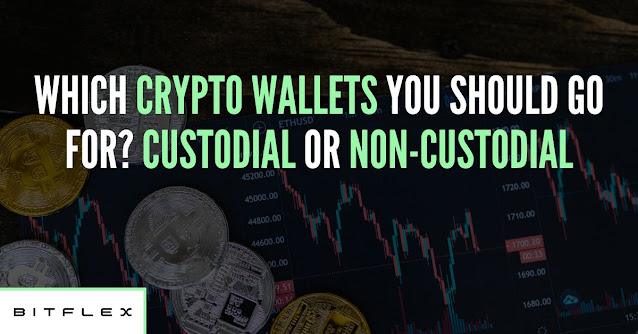Once you purchase your cryptocurrency, the next viable option is its safekeeping. To keep them in your custody or not. The problem is solvable, and many people exercise the option to keep them in digital crypto wallets. When it comes to crypto wallets, the wallets are available in two major types custodial and non-custodial. Whereas the non-custodial wallet is not so safe, the opposite is true for the custodial wallet. There is no definite method to determine what are the best crypto wallets. But we can identify in terms of some salient parameters. Such as safety, safekeeping, and immediate access.
Usually, when crypto trades are made, we like to shift our assets on the exchanges and their wallets. By class, we have two variations for custodial wallets. Depending upon the changes and type, we can expect some enhanced features with both.
How Do Crypto Wallets Work?
Non-Custodial Wallets
With a non-custodial wallet, you can keep safe your assets or crypto. The non-custodial wallet comes with private keys which give its users control over funds and assets. And there is no intrusion of a third party in controlling your assets. With a non-custodial wallet, you own your funds and act more like owning a bank. Such a wallet can act as a free source and device for containing your funds. You can access, transfer, and retrieve information about your wallets at any time you want. But non-custodial wallets come with precautions for protecting your assets via keys.
Custodial Wallets
Just as the non-custodial wallet works the custodial wallets serve the same functions. Most custodial wallets are controlled by third parties while their secret keys lie in their custody. In short, you trust a third party to make changes to your assets such as receiving and sending them. Custodian wallets relieve you of the personal load to keep your assets in your custody. But it burdens you with the safety of your assets. Many centralized and hybrid exchanges keep your assets safe in their custody. In this way, you can just give orders for executing your trades just like sending and receiving payments. But the custody lies with the exchange such as Binance, KuCoin, and Bitflex. With custodial wallets, personal responsibility lessens. The custodian in this case is the exchange with which the cryptocurrency is kept safe.
Most cryptocurrency exchanges that maintain custodial wallets are online exchanges and web-based wallets. Such wallets are maintained by the exchanges and are often called hot wallets. With a custodial hot wallet, your keys are exposed to attackers and scammers. When you invest in crypto make sure you determine what type and kind of wallet can work best for you. With a custodial wallet, you must log in with your credentials and then access your wallet and its funds. With exchange-based custodial wallets, make sure you keep the security measures active as well.
Owning the Responsibility for your Assets
In custodial assets, you have complete authority over your assets whereas you can keep the keys in your custody. The key comes with a QR code you can either print or safely keep somewhere. Or else
the hard wallets that are in the form of USBs. Such hard wallets come with combinations and passwords. Even if there is malware in your system, your hard wallet would not be affected by it. In the case of a cold wallet, your wallet is not opened unless the keys or phrases do not match up. Only then does your hard wallet gets connected to the internet for making necessary transactions. With hard or cold wallets that are installed in your devices can be accessed from anywhere else too. In that case, if someone finds your key, they can rip you off the funds.
Hard wallets are also called cold storage wallets because they provide you with analog options. The interface is more like a screen or storage device. To attach to the internet, you need to have a Bluetooth device and software installed in your system. Although during a transaction they do get connected to the internet.
But with a non-custodial wallet, you cannot trust any third party. Such wallets want the owner to have access to their own keys. Such keys are available in the form of a PIN, QR code, and a required password. Such passwords should be in a written format and kept in safe custody. These kinds of wallets are referred to as cold wallets as well.
The downside is that you forget or lose access to your wallet if your key is stolen, forgotten, or lost. It can end up in the hands of someone and you can lose ownership of your funds completely. When you do online trading, keep funds in safe custody, and make sure you do not lose money to scammers and spammers. If someone asks you about your key phrase, make sure you don’t disclose it to everyone. If your phrases or keys get vulnerable, your valuable funds can be drained.








0 Comments